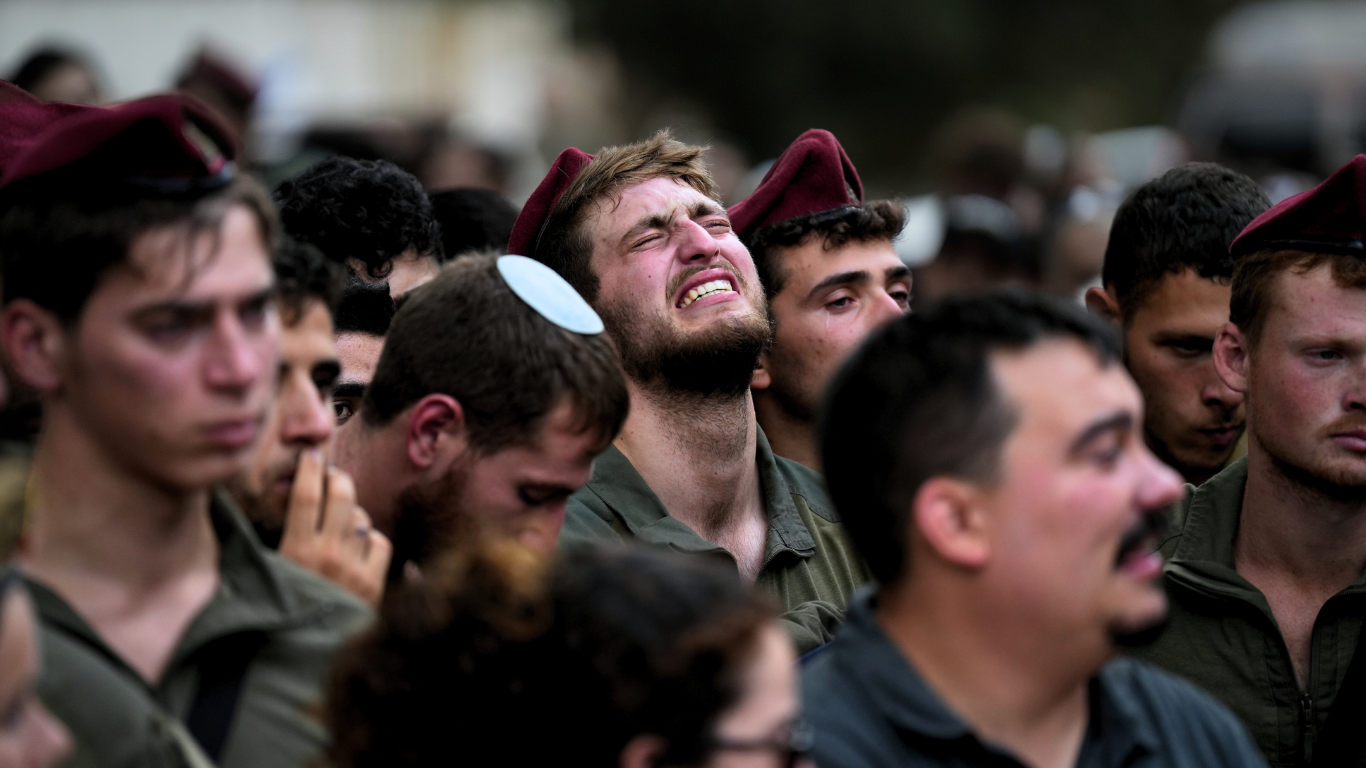The Israeli Hebrew media outlet Ha-Makom has reported that Israeli soldiers are experiencing a significant lack of motivation, with some refusing to report for service. Many within the ranks reportedly see the ongoing war in Gaza as futile, while the army attempts to keep this crisis under wraps.
The October 23 report revealed a crisis within the army, as soldiers increasingly refuse to return to combat after engagements in the Gaza Strip. The piece, based on interviews with over 20 soldiers and their parents, highlighted concerns over incomplete missions, unclear objectives, and the heavy toll on the battlefield, with many questioning the purpose and outcomes of their efforts.
“The platoons are empty; everyone who is not dead or injured is mentally damaged. There are very few left who returned to fight, and they are not completely healthy either,” said the parent of a soldier serving in the Nahal Brigade. In the 11th deployment of this brigade, it was noted that out of a platoon of 30 soldiers, only six decided to return to the battlefield.
Inbal, the mother of a soldier, revealed insights into the Israeli army’s combat experience. She said the soldiers had entered the war with high morale and a willingness to fight, aiming to defeat Hamas and bring Israel’s captives home. However, the reality turned out to be different:
“They return to the same buildings that they cleared…They have been to the Zeitoun neighborhood three times already. They understand that it is futile and pointless.”
6/ The article states that this a suppressed but growing phenomenon of soldiers refusing to fight. The unity and sense of mission that once drove them has faded. "They fought until their last ounce of strength, but reached a point where they just couldn’t continue." pic.twitter.com/fwbcb9rluu
— Sina Toossi (@SinaToossi) October 20, 2024
The article extends its claims beyond fighters from the Nahal Brigade, uncovering similar issues among members of the 35th Paratrooper Brigade, Givati Brigade, and the Commando Brigades. One Israeli commando fighter remarked that in Gaza, “we are like ducks at the (shooting) range; we don’t understand what we’re doing here.”
“I don’t know what army they’re thinking of entering Lebanon with, but I’m not going back to the battalion,” was the striking comment of one soldier in an interview conducted before Israel’s ground war with Hezbollah even began.
A report published this month on Yediot Aharanot’s Hebrew website highlighted significant breakdowns in trust between elite special forces fighters and their superiors along the Southern Lebanese border. Allegations have surfaced questioning the decision-making of the elite Egoz Unit’s commander, which reportedly led to the deaths of soldiers in Lebanon.
While Gaza has been downgraded to a “secondary front” in Israel’s Middle East war, the crisis in manpower and motivation appears to be affecting the Israeli military. Reports suggest that Israel is considering a two-week ceasefire with Hamas, with Egypt mediating.
Hezbollah released a communique on Wednesday claiming that its fighters had killed at least 70 Israeli soldiers and officers, injured over 600, and destroyed 28 tanks, an armored personnel carrier (APC), four military bulldozers, and another army vehicle. Although Israel has not acknowledged all these losses, and its casualty toll is subject to military censorship, even U.S. media reports reflect the intensity of the fighting along the Lebanon border.
Field Summary Issued by Hezbollah's Operations Room:
Enemy losses: Over 70 IOF thugs were killed, and more than 600 were injured.
Destroyed equipment:
28 Merkava tanks
4 military bulldozers
1 armored vehicle
1 troop carrierDowned drones:
3 Hermes 450
1 Hermes 900 pic.twitter.com/XsZ41Jst3w— الأخ الكبير (@BIG__Brother7) October 23, 2024
With reports indicating a manpower crisis, as well as declining trust and motivation to continue the battle, serious questions arise about Israel’s ability to sustain a multi-front war. According to the Washington-based Atlantic Council think tank, the conflict between Hezbollah and Israel has not yet escalated into a full-scale war. However, if this changes and Tel Aviv becomes entangled in a more costly conflict, the crisis facing the Israeli army may prove insurmountable.
Feature photo | Israeli troops attend the funeral of Sgt. First Class Nazar Itkin, killed during Israel’s ground invasion of Lebanon in Kiryat Ata, Israel, Oct. 6, 2024. Baz Ratner | AP
Robert Inlakesh is a political analyst, journalist and documentary filmmaker based in London, UK. He has reported from and lived in the occupied Palestinian territories and hosts the show ‘Palestine Files’. Director of ‘Steal of the Century: Trump’s Palestine-Israel Catastrophe.’ Follow him on Twitter @falasteen47


